War
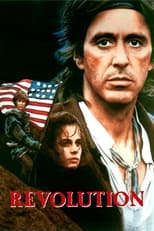
Revolution
December 25, 1985
New York trapper Tom Dobb becomes an unwilling participant in the American Revolution after his son Ned is drafted into the Army by the villainous Sergeant Major Peasy. Tom attempts to find his son, and eventually becomes convinced that he must take a stand and fight for the freedom of the Colonies, alongside the aristocratic rebel Daisy McConnahay. As Tom undergoes his change of heart, the events of the war unfold in large-scale grandeur.
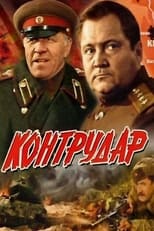
Counterstrike
December 16, 1985
November 1943. The army of general Vatutin is preparing to cross Dnepr river.
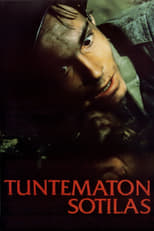
The Unknown Soldier
December 6, 1985
Second silver screen adaption of the Finnish war book by Väinö Linna. The story is based on Linna's experiences as an infantry man in the Finnish army during the so called "Continuation War" (1941-1944).
Jimbo
December 5, 1985
A military man temporarily discharged from service, returns to his hometown and incurs the ire of a ruthless landowner who orders his uncle and brothers killed.

Rebel
December 5, 1985
This drama is set in World War II Australia, where an American Marine, Rebel is recuperating from wounds suffered in battle. He is weary of war and is intent on going AWOL and escaping from Australia. He becomes infatuated with a local singer, Kathy and pursues her. Kathy is married and initially is not interested in him, but later begins to love Rebel. Kathy receives a letter advising her that her husband was killed in battle. The local police and the U.S. Military are searching for Rebel as an AWOL soldier. Rebel arranges to escape Austalia by a cargo ship, but eventually allows himself to be arrested in order to keep the local police from arresting Kathy for harboring him
Až do konce
December 1, 1985
Sudetenland, May 1945. A group of retreating German soldiers capture a group of young female workers, totally deployed in a chemical factory. He wants to use them as hostages during his advance to the American demarcation line. Together with them, they take refuge in a nearby castle, which soon becomes the site of the last battle that takes place both in the minds and in the backdrop of war-torn Czechoslovakia, shortly before liberation. A psychological probe as well as an intimate drama set within the walls of a small castle, it is a mosaic of mini-stories charting the fates, attitudes and thought processes of individual characters on both sides of the barricade.
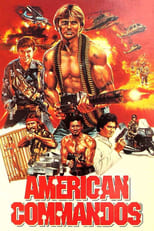
American Commandos
November 11, 1985
A group of Vietnam vets are sent to Southeast Asia to destroy drug-smuggling operations in the Golden Triangle. When they get there, they find that many of the drug gangs are run by other Vietnam vets.
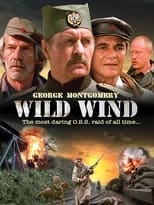
Wild Wind
November 1, 1985
August 1943, Europe. The tentacles of the German octopus have begun to recoil. As the Nazis retreat, their concern focuses on the supply of oil from the refineries of Romania. Without the flow of "black gold", Germany's doom is sealed. Armadas of American bombers from bases in North Africa have begun to assault Pioesti - and there is another threat from the Partisans across the border of Yugoslavia. Against the tableau of spectacular events, the dramatic story of WILD WIND unfolds.
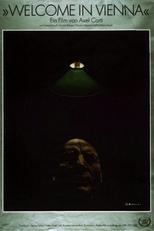
Welcome in Vienna
January 1, 1986
Freddy, a Viennese Jew who emigrated to New York after Hitler's invasion, and Adler, a left-wing intellectual originally from Berlin, return to Austria in 1944 as soldiers in the U.S. Army. Freddy falls in love with the daughter of a Nazi, and Adler attempts to go over to the Communist Zone. But with the advent of the Cold War and continuing anti-semitism, the idealism of both characters is shattered as they find themselves surrounded by cynicism, opportunism, and universal self-deception.
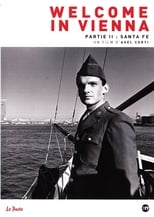
Santa Fe
January 1, 1987
After arriving in 1940 New York, Freddy struggles to find work. His world of refugee acquaintances includes the depressed daughter of a poet/delicatessen owner, an aging surgeon who cannot find work, and a lovable charlatan photographer.

Malhamat Kabreet
October 7, 1985
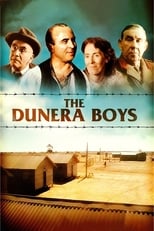
The Dunera Boys
October 3, 1985
At the start of WWII the British Government decided to arrest all Germans in the UK no matter how long they had been there. Among those arrested were many Jewish refugees and many who were fully assimilated. This film records the story of a group who were sent to a POW camp in Australia aboard the Dunera.

Long Memory
October 1, 1985
Set in 1941 during World War II the film involves the lives of Volodya, Vanya, Galya and Nyusha and how this conflict has affected these children, portraying their struggles, resilience, and the enduring memories that shape their lives.
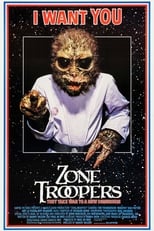
Zone Troopers
October 1, 1985
American soldiers, led by The Sarge, are stuck behind Nazi enemy lines. As they make their way across the Italian countryside, they come across an alien spaceship that has crash-landed in the woods. The alien pilot is dead, but one of the ship's passengers is on the loose. As the GIs hunt down the alien by splitting into smaller groups, they're not only tracked by the Nazis, but also a whole host of other aliens come to save their stranded party.
Meeting Before Separation
September 24, 1985
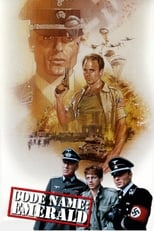
Code Name: Emerald
September 7, 1985
In preparation for Operation Overlord, the Allied invasion of Nazi occupied territory, the 'overlords' were the few Allied agents who knew the details of the operation. When one them is captured by the Germans, a double agent must infiltrate occupied Paris, with the help of a high level German officer and the French Resistance.
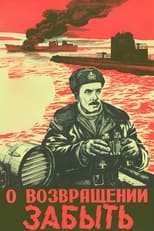
Forget About the Return
September 6, 1985
In the port of Danzig, the military transport Tyrol is preparing to leave, on board which are selected SS units and seventy naval crews. The commander of the Soviet submarine "S-31", which received serious damage, receives the task of detecting and attacking enemy transport...
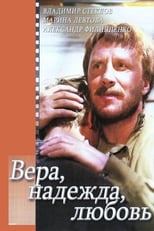
Faith, Hope, Love
September 1, 1985
Caesura
August 30, 1985
War film set in Vietnam in February 1966. A wounded American soldier, marooned by the crash of his helicopter, shares a poignant moment with a Viet Cong soldier who spares his life through a common love of music. They play a brief duet on harmonica and flute and exchange instruments before the arrival of a rescue helicopter sends the VC away.
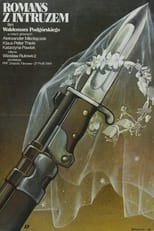
Romans z intruzem
August 29, 1985
End of August 1939. The Polish-German border is crossed by a German defector from the Wehrmacht, Ernst Hoffman, with the information that on August 26 at 4:45 Germany will attack Poland.